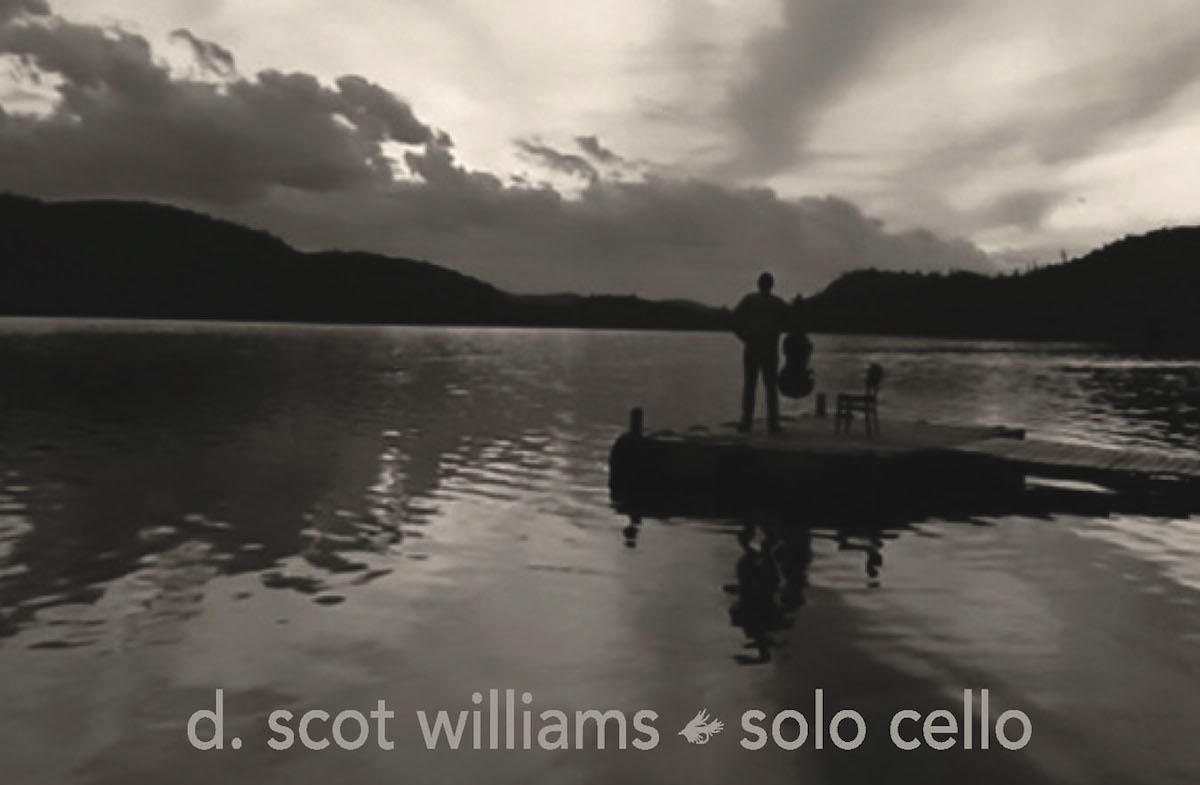It took me less than 10 minutes to get to the Fountain City Diner to meet D. Scot Williams, partly to catch up, partly to talk about his new recording for unaccompanied cello.
It took me more than 40 minutes to get back home after our lunch. I sat in the car in my driveway listening to him play. Then I listened again and again. Early in the morning before the sun came up and late at night with the lights down low, when there were no intrusions on the sound of his fingers and bow on the cello strings.
Williams, an artist on multiple levels, is as skilled a wood craftsman as he is cellist. He has been a tenured member of the Knoxville Symphony cello section for many years.
I first heard Williams playing more than three decades ago when my wife and I were invited to Williams’ home for an evening. He had invited a group of his fellow symphony musicians to play Richard Wagner’s “Siegfried Idyll,” just for the joy of hearing themselves play it.
It’s a piece Wagner wrote as a birthday gift to his wife. On the morning of her birthday, a small group of musicians, directed by Wagner, gathered in the Wagners’ parlor to awaken her with this new composition.
I had that same sort of very personal experience listening to the eight pieces on Williams’ new CD, all of them, except one, written specifically for Williams. Two of the pieces, “Capriccio #1,” from 2009, and “Capriccio #3,” from 2013, were written by Williams himself.
All of the other composers are Williams’ long-time friends.
Robert Cronin, who wrote the “Prelude for D,” (2014) that opens the recording and the “Sonata for Unaccompanied Cello – Elegia” (1996), the longest piece on the recording, is now the associate principal flute of the Atlanta Symphony. He previously was principal flute of the KSO for eight seasons.
Two of the works were composed by former KSO music director Lucas Richman. “Stream of Consciousness” was written in 1988. “Adoration,” the newest composition, was written just last year. It’s intended to be part of a worship service. One can hear both the sense of aspiration and praise in the music.

D. Scot Williams
Williams premiered it last June at the Episcopal Church of the Good Shepard in Rangeley, Maine, during his annual fly fishing trip. While in Maine, Williams often plays with Bangor Symphony Orchestra, where Richman is currently music director and conductor.
The other two pieces on the recording were written by Mark Harrell, who plays horn in the orchestra. Collectively, “Sonata for Solo Cello – Introduction and Saltarello” and “Aria” are the longest music, and technically the most demanding on the recording.
Despite its modern technical demands, which Williams plays will care and skill, the “Aria,” especially, has coloring one might hear in early Renaissance music.
This is not a recording to try to listen to while doing something else. The playing is sometimes delicate and requires careful attention it hear its subtleties, multiple-stopped harmonies and tender nuances in the plucked notes.
Some recordings seem not to care how carefully you listen. This one does. Your time and attention will be rewarded. It’s a satisfying recording.
The self-titled “D. Scot Williams – Solo Cello” is available through the Knoxville Symphony box office by calling 865-523-1178. Produced by Williams himself, only a limited number are currently available. You will be glad one of them is yours.

